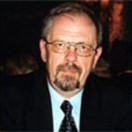Land-based Pollution Group (HELCOM LAND)
Most of the pollution in the Baltic Sea originates from sources on land. The Baltic has for centuries been used as a huge natural treatment plant for the wastes generated around its catchment area, which is nowadays home to almost 85 million people, and characterised by intensive industrial and agricultural development.
The role of HELCOM LAND
The Land-based Pollution Group is responsible for reducing pollution from all sources on land within the Baltic Seas catchment area. HELCOM LAND identifies point and diffuse sources of land-based pollution of nutrients and hazardous substances, and proposes suitable actions in order to reduce these emissions and discharges. HELCOM LAND also works to promote environmentally sound practices and technologies - Best Available Techniques (BAT) and Best Environmental Practices (BEP).
Priority areas of HELCOM LAND
1. Eutrophication and hazardous substances
The objective is to reduce inputs of nutrients, especially from diffuse sources such as agriculture and transport and to pursue the cessation target for discharges, emissions and losses of hazardous substance by 2020.
The actions with regard to eutrophication are:
- Indicate the most cost-effective measures in the different sub areas of the Baltic Sea based on assessment of most important pollution sources;
- Facilitate the establishment and implementation of national programmes to reduce nutrients;
- Assess the possible impacts of agricultural policies of Contracting Parties, including the implementation of the reform of the EU Common Agricultural Policy, considering the specific needs in the Baltic Sea region;
- Identify sources of airborne nitrogen pollution and propose solutions for reduction mainly by addressing decision-making in other fora
The actions with regard to hazardous substances are:
- Identify and develop measures for hazardous substances not covered by other fora;
- Initiate relevant projects in Russia raising awareness and improving capacity building and data collection as well as to address the problem of obsolete pesticides and PCBs;
- Assess the progress and facilitate the establishment of national programmes in implementation of the HELCOM objective with regard to hazardous substances.
The actions with regard to both eutrophication and hazardous substances are:
- Address transboundary pollution originating from sources in, inter alia, Belarus and Ukraine in order to have a stronger engagement in transboundary River Basin Management;
- Elaborate HELCOM measures for the effective use of BAT for industrial sectors.
2. Implementation of the Baltic Sea Joint Comprehensive Environmental Action Programme (JCP)
The objective is to facilitate the implementation of pollution reduction measures at the most polluted sites in the Baltic Sea catchment area maintaining the high external profile of the JCP concept and the “Hot Spot” label and complete the JCP by 2012 at the latest.
The actions with regard to Hot Spots are:
- Assess the development and support the Contracting Parties when addressing the problems of the Hot Spots;
- Review the List of Hot Spots according to the latest development and pollution alleviation priorities leading to deletion of existing Hot Spots;
- Ensure a stronger coordination and cooperation with similar programmes and activities.
Contacts

Chairman of HELCOM LAND
Mr. Leonid Korovin
St. Petersburg Public Organization "Ecology and Business"
P.O. Box 66
RU-197 342 St. Petersburg
Russia
Phone: +7 812 430 6860
Fax: +7 812 430 9305
HELCOM Secretariat
Professional Secretary
Mr. Mikhail Durkin
Phone: +358 46 850 9195
Fax: +358 (0)207 412 645

